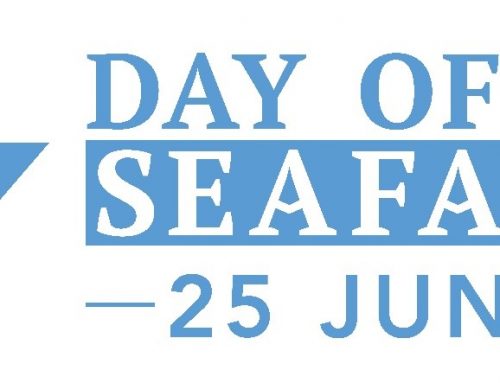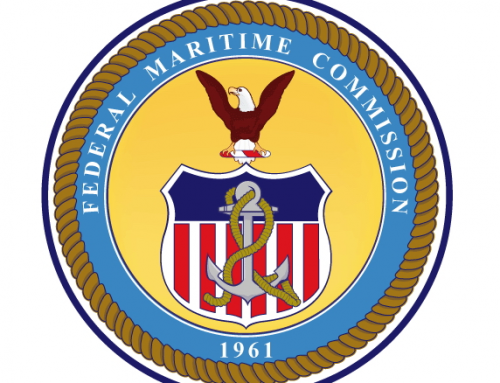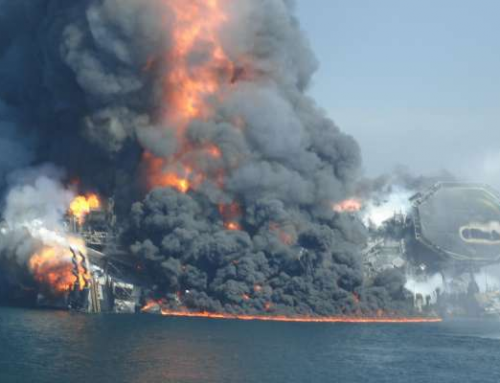 The U.K.-based charity Human Rights at Sea Human Rights at Sea (“HRAS”), an international organization advocating for human rights throughout the maritime environment, has issued a statement that it has been contacted by an increasing number of seafarers who are calling for more personal protective equipment (“PPE”) to be made available for their use. Meanwhile, on March 3, 2020, the International Chamber of Shipping (“ICS”) issued its “Coronavirus (COVID-19) Guidance for Ship Operators for the Protection of the Health of Seafarers”, which was in line with current UN agency guidance.
The U.K.-based charity Human Rights at Sea Human Rights at Sea (“HRAS”), an international organization advocating for human rights throughout the maritime environment, has issued a statement that it has been contacted by an increasing number of seafarers who are calling for more personal protective equipment (“PPE”) to be made available for their use. Meanwhile, on March 3, 2020, the International Chamber of Shipping (“ICS”) issued its “Coronavirus (COVID-19) Guidance for Ship Operators for the Protection of the Health of Seafarers”, which was in line with current UN agency guidance.
However, the current advise states: “Although face masks may provide some protection – especially if there is a risk of exposure when interacting with persons from outside the ship – the routine use of face masks is not generally recommended as protection against COVID-19. The World Health Organization (“WHO”) advises that it is appropriate to wear a mask when coughing or sneezing. If an individual is healthy, it is only necessary to wear a mask if the person is taking care of a person with the suspected COVID-19 infection.”
The above view of WHO is not necessarily shared by frontline seafarers, says HRAS. However, HRAS appears to be seeking greater reassurance as a whole for individual levels of protection as the pandemic unfolds, including the individual right to wear PPE such as masks and gloves. HRAS has cited Regulation 4.3 of the 2006 Maritime Labour Convention, which covers Health and Safety Protection and Accident Prevention. That Regulation states: “1. Each Member shall ensure that seafarers on ships that fly its flag are provided with occupational health protection and live, work and train on board ship in a safe and hygienic environment.”
In the recent case of the Master of the M/V TOMINI DESTINY refusing to off-load alongside the port of Chittagong, Bangladesh, due to crew concerns over contracting COVID-19 from excessive numbers of allegedly unscreened local stevedores not using PPE, the Master asked that PPE, to include gloves and face masks, be made available for crew use during ongoing shipboard operations, plus the remote off-loading of cargo by barges to be done away from port wharves.
After discussion, a compromise was reached, with the owners issuing the crew with comprehensive PPE, and sanctioning the off-loading of cargo in outer anchorages of the port area as part of the agreement. However, HRAS stated that consistent use of PPE cannot be guaranteed by workers (including longshoremen) involved in offloading cargo when in contact with the ship’s crew members.
“In reality, at the present time such high quality PPE may not be widely available, not individually recommended, nor realistic for use by crew, but the trend appears to be that seafarers are wanting to have access to it,” said HRAS in a statement.
Have you or a member of your family been diagnosed with coronavirus while at sea? Or requested and been denied PPE, and developed an illness or injury as a result? Are you a passenger or crewmember who contracted coronavirus or was injured while on a vessel on navigable waters? Depending on the circumstances, you may have a claim. Feel free to contact the Herd Law Firm, PLLC, to discuss your rights.
The above is a summary of one or more news stories reviewed by the author of this article. It may contain comments or views of the author only.
This article is intended for general interest and does not constitute legal advice.
Image Source: Human Rights At Sea







